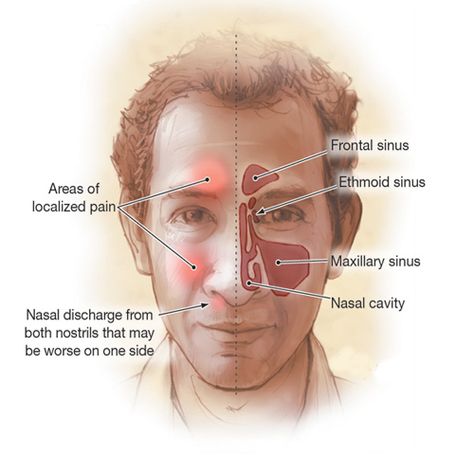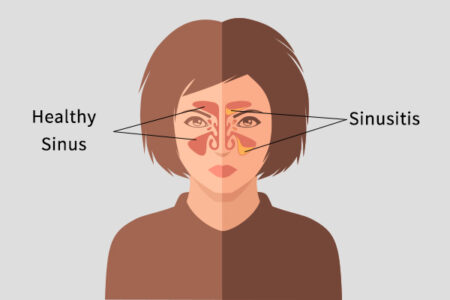
There are four main types of sinus cavities: the ethmoidal, maxillary, sphenoidal, and frontal. Each has a different function. The ethmoidal sinus is closest to the nose, while the maxillary sinus is located below and behind the eyes. The frontal and sphenoidal are further back in the face. The maximum medical treatment lasts four to six weeks, and may include antibiotics, steroid nasal spray, and other prescription medicines. Following the maximum medical treatment, a CT scan may be recommended to look for any nasal polyps.
Surgical treatment is the best option for those with recurring acute sinusitis. A nasal bleed can lead to chronic, unrelenting pain and can even result in deafness. In severe cases, antibiotics may be necessary. In some cases, postnasal drip (postnasal drip) may cause a persistent cough. If left untreated, the infection could become recurrent.
If you have recurring sinusitis, it is important to seek medical treatment as soon as possible. While there is no cure for this condition, over-the-counter medications are not sufficient. Some people may have a chronic condition and require surgery. For people suffering from allergies or with recurrent respiratory infections, the best treatment is a course of antibiotics. And don’t forget to wash your hands frequently. There are plenty of foods that can help you control or prevent sinusitis.
If you suspect a sinus infection, you should see your doctor. You should see your doctor if you experience any of these symptoms. The health care professional will ask you detailed questions about your symptoms and perform a physical examination. They will also check your ears and nose. If the infection is severe, they may use an endoscope to look inside your nose. They will then perform a physical examination to rule out other causes.
Symptoms of sinusitis may include postnasal drip and cough, which may interfere with breathing. In severe cases, the infection can spread to the brain and lead to blindness. Inflammation of the sinuses can lead to narrowing of the airways and difficulty breathing. Your doctor will recommend antibiotics or write a prescription for a decongestant. Your doctor will recommend the appropriate medicine.

When mucus and fluid accumulate in the sinuses, they can block drainage and cause pain. This condition can also lead to secondary bacterial infections, which can lead to a secondary infection. These symptoms should be treated as soon as possible, and symptoms can last up to three months. Your doctor will also determine the cause of your sinus infection. They will perform a physical examination to rule out bacterial infections. So, if you notice any of the above signs, it’s time to see a doctor and visit the health website palermo-store.it.
Symptoms of sinusitis will most likely be painful. You may experience a stuffy, runny or irritated nose. Yellow or green discharge is also a sign of a sinus infection. You may experience fever and facial pain, which may also be accompanied by a weakened immune system. If symptoms are severe, it’s time to see a doctor. Your doctor will check for signs of infection and determine the most appropriate treatment.
Symptoms of sinusitis are caused by inflammation of the mucous membrane in the sinuses. Inflamed mucus blocks the flow of mucus. This causes pressure and pain. Moreover, it can allow bacteria to grow in the sinuses and cause a secondary bacterial infection. Fortunately, there are several treatments for sinusitis. The first step is to find out what is causing the pain.
Symptoms of sinusitis can range from a mild annoyance to more severe symptoms. If you have a fever, you may have an upper respiratory infection. If you have a cold, you should avoid contact with sick people. A high fever could be a sign of sinusitis. You should also wash your hands frequently and avoid polluted air and tobacco smoke. These can irritate the nasal passages and cause an infection.
While sinusitis is easily treated by home, a doctor should be consulted in case of complications. If the problem is caused by bacteria, antibiotics are not necessary. Symptoms of a sinus infection are not always easy to determine. However, if you have a fever and the infection is affecting your sinuses, you should see a doctor right away. The doctors will prescribe antibiotics to treat the symptoms of the condition.